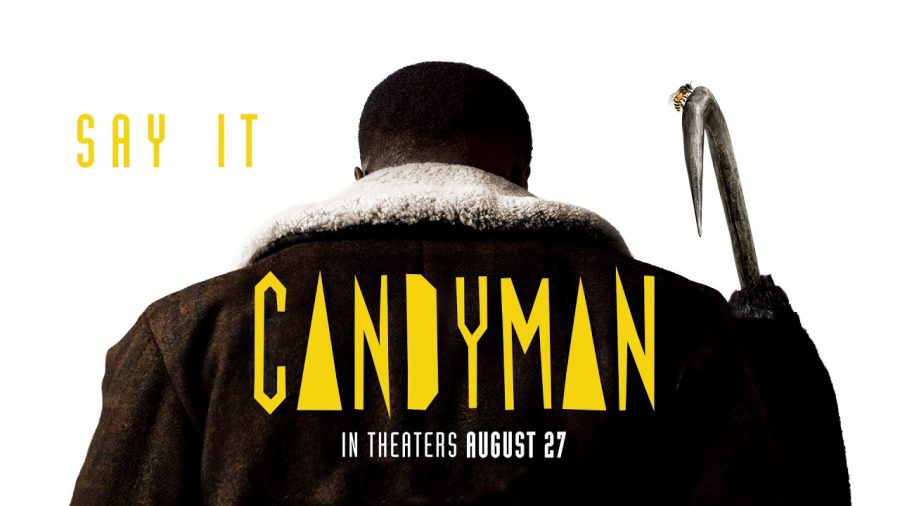Legends never truly die in ‘Candyman’
August 30, 2021
Bernard Rose’s 1992 film “Candyman” is one of my favorite films. It fuses horror with social commentary on gentrification, racial prejudice and the power of folklore. What you deem nonsense, others believe is horrifying gospel.
Director Nia DaCosta’s “Candyman” revives the hook-handed spirit in this modern reincarnation.
She expands upon themes and lore from Rose’s original, using art for its beauty, grotesque nature and ambiguity.
It is a worthy sequel to Rose’s classic and lively experience.
In DaCosta’s version, acclaimed artists Anthony McCoy and girlfriend Brianna Cartwright lead successful lives in Chicago.
McCoy visits the abandoned remains of Cabrini-Green for an art project. The familiar complex has been vastly erased.
Let’s just say he will regret picking up that paintbrush.
Yahya Abdul-Mateen II plays McCoy from ambitious and intelligent to paranoid maniac.
Teyonah Parris as Cartwright plays a confident, self-made woman fearing for her life later on.
Colman Domingo plays William Burke, an eccentric laundromat owner with deep roots in Cabrini-Green.
McCoy and Cartwright’s artwork highlights the film’s themes and messages.
My favorites were McCoy’s grotesque portraits of Black men, showing exposed skull and tortured expressions in a sea of muddy colors.
Some art pieces reflect commentary on racial injustice, biases and how urban legends transcend time.
Why are we so compelled to chant “Bloody Mary” in the mirror? We want to satiate our fears and curiosities despite any potential danger. And it’s fun for sleepovers, too.
Important themes range from gentrification to police brutality and society’s outlook on crimes involving race.
Scenes of abandoned complexes retaken by nature pale against clean, modern architecture.
Violent deaths of innocent Black citizens dissolve into time while a white woman’s death becomes immortalized.
You can see this when white characters talk to our Black protagonists. Notice their plastic and insincere tones.
One word of warning—If you are prone to seizures, intense flashing lights appear near the end.
Theaters will remind you about this.
DaCosta’s “Candyman” breathes new life into the titular killer for a new era. She delves into issues relevant in American society now more than ever.
It marries horror, art and commentary creating a beautifully bloody tale.
Take this standout line from Burke: “They love what we make, but they don’t love us.”



